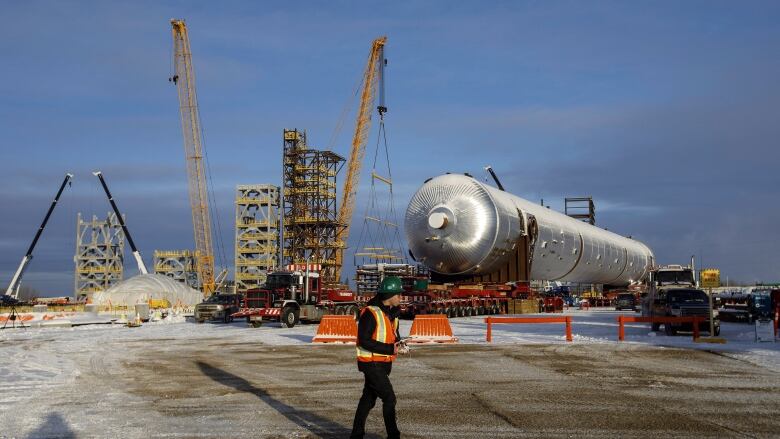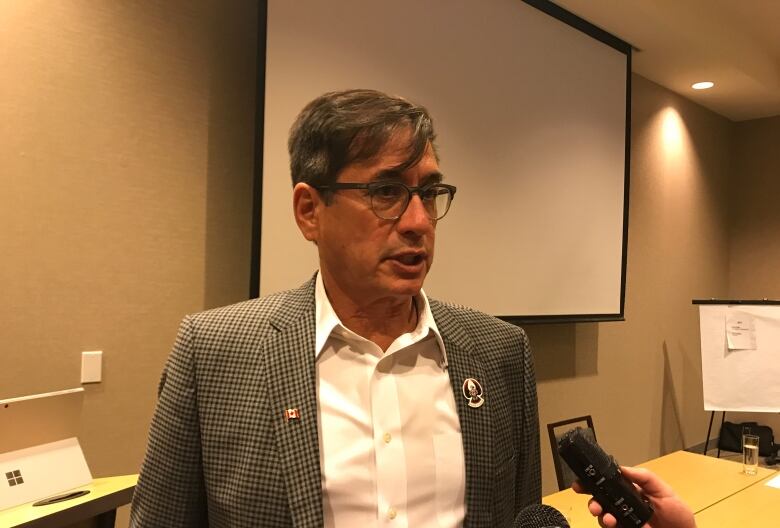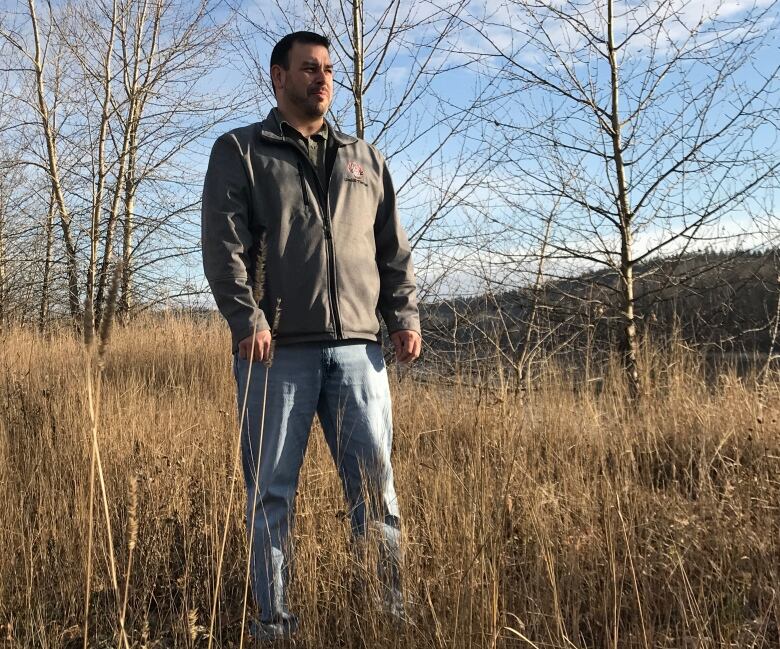Prince George, B.C., once again considered as potential home for plastics plant
In May, West Coast Olefins announced it was considering building the facility north of the city

Prince George is once againbeing considered as the site fora $5.6 billion petrochemical plant that some First Nations and local residents worry will be a bigpolluter.
Calgary-based West Coast Olefins announced plans in June 2019 to build the plant in BCR Industrial Park, located in southeastern Prince George.
After much backlash from community members concerned about air and water pollution, the company changed its mind in May, announcing it was considering other sites outside of the city, including one at Summit Lake, about 50 kilometres north of Prince George, and another at McLeod Lake, about 140 kilometres north.
"We aren't going to build plants where the community doesn't welcome us," CEO Ken James said in a Facebook live event in May.
But this week, the company changed tack once again.
"After much consideration, we have abandoned our decision to relocate north of Prince George and are now returning to our original site in the BCR Industrial Park," James wrote in a statement on Tuesday.
The CEO says a B.C. Court of Appeal's ruling in May on First Nations territorial boundaries means the company would have to do the extra work of negotiating with more Indigenous communities other than McLeod Lake Indian Band in order to have the facility built outside of Prince George.
He also wrote that many Prince George residents want the petrochemical facility to be built in town to offer job opportunities.
West Coast Olefins plans to extract natural gas liquids, such as ethane, propane and butane, from a natural gas pipeline running through Prince George. Those by-products would then be used to make materials like plastic and rubber for Asian markets.

The company has promised that the facility could create 1,000 permanent jobs at a time when mills are shutting down or curtailing operations.
"It's too good to be true," said Dr. Marie Hay, a pediatricianwho lives in downtown Prince George.
The 67-year-old says the petrochemical facility could generatestyrene, acrylonitrile and vinyl chloride which may cause cancer and heavy metals including cadmium, which may disrupt the endocrine system and lead to reproductive disorders such as male infertility.
These concerns are not addressed in West Coast Olefins' statement.
"This is my home. This is where my children grew up. I don't want to move," Haysaid.
Hay is a member of advocacy group Too Close 2 Home, which James says has been opposing the project regardless of whether it's built within the city limits or north of the city.
"A lot of us [in northern B.C.] are getting frustrated with a vocal minority driving the agenda," James said in a Facebook live event earlier this week.
James wrote in the statement that West Coast Olefins will continue to consult with McLeod Lake Indian Band and Lheidli T'enneh Nation before the petrochemical facility project is approved by the provincial government.

But both Indigenous communities said Thursday in a joint statement that they won't support the plant being built in the BCR Industrial Park and there will be "no future negotiations" with West Coast Olefins on the plant relocation.
"We [First Nations] have been participating, but they [West Coast Olefins] have been very all over the place, so they haven't really built a friendship or trust with us at all," said Lheidli T'enneh Nation Chief Clay Pountney
CBC News has requested additionalcomment from James.
Subscribe toDaybreak NorthonCBC Listenor yourfavourite podcast app, and connect with CBC Northern British Columbia onFacebook,TwitterandInstagram.
With files from Pamela McCall, Betsy Trumpener and Andrew Kurjata












_(720p).jpg)


 OFFICIAL HD MUSIC VIDEO.jpg)
.jpg)



























































































